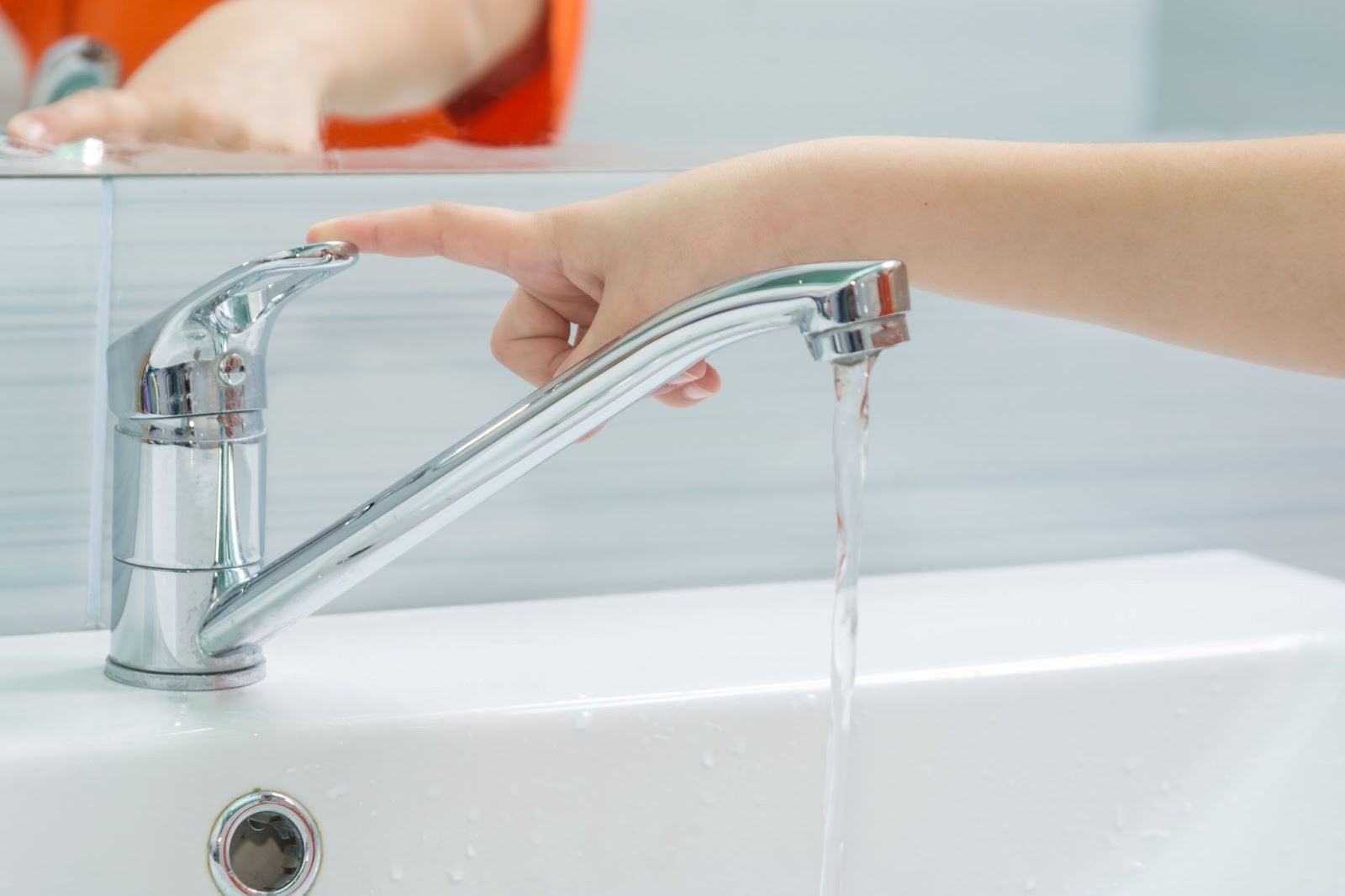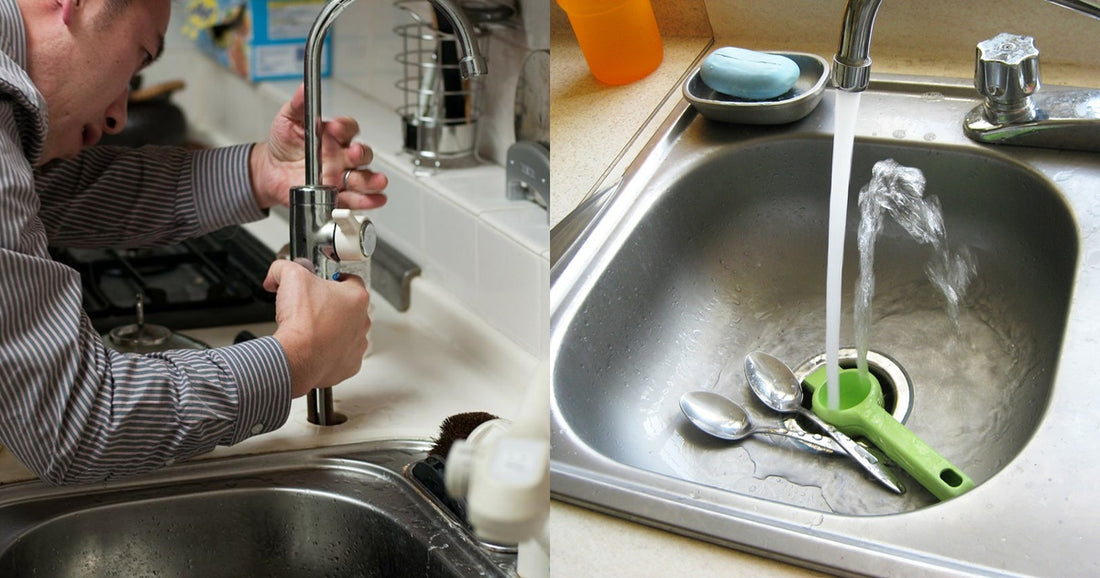Just how do you really feel in regards to How to Fix a Slow Draining Sink?

Intro
We've all been there: You're cleaning your teeth or cleaning your hands, and you notice the water merging in the sink. Rather than promptly swirling away, it sticks around, turning your once-refreshing early morning routine into a small overload scene. A slow-draining sink isn't simply aggravating; it's usually an indicator of bigger plumbing concerns hiding beneath the surface. The good news is that the majority of slow-draining sinks can be taken care of with a little know-how, a couple of fundamental devices, and some patience. Prepared to tackle this task head-on? Let's roll up our sleeves and dive right in.
Recognizing the Causes of a Slow-Draining Sink
Before you begin poking around in your pipelines, it assists to understand what may be triggering the slowdown. Recognizing the source makes it much easier to select the right fix.
Devices and Products You'll Require
The right tools make all the distinction. The good news is, you will not need a fully equipped plumbing's van to do the job.
Step-by-Step Overview to Taking Care Of a Slow-Draining Sink
Now, allow's get into the nitty-gritty. This step-by-step process will lead you through simple strategies to restore your sink's water drainage.
Step 1: Eliminate and Clean the Stopper
Usually, the stopper (that small plug you lower to obstruct water) is the initial culprit. Remove it very carefully and wipe any type of hair or gunk entraped around its base. Rinse it completely before placing it back in position.
Step 2: Make Use Of a Plunger to Displace Particles
Got that plunger ready? Setting it over the drain and provide it a few company pumps. The idea is to produce suction that can loosen up any blockage. If you see bits of debris drifting up, you're on the ideal track.
Step 3: Try a Drainpipe Snake or Cord Wall Mount
If the plunger doesn't do the trick, it's time to bring out the drainpipe snake. Delicately feed it right into the drain and twist as you go. You could feel some resistance-- that's most likely the blockage. Keep turning and pulling up until you remove the blockage. If you don't have a drain snake, a straightened cable wall mount can work in a pinch.
Tip 4: Use a Do It Yourself Drainpipe Cleaner
An all-natural cleaner made from cooking soda and vinegar can break down residual gunk. Put half a mug of cooking soda right into the drain, followed by half a cup of vinegar. Let it fizz for about 15 mins, after that flush with hot water. This chemical reaction often does wonders for small clogs.
Tip 5: Reassemble and Evaluate the Sink
Put whatever back together and run the faucet. Does the water currently swirl away at a commendable rate? If yes, offer on your own a pat on the back. If not, don't misery-- there are still a couple of even more tricks up your sleeve.
Important Devices for Do It Yourself Repair Works
A plunger is your best starting factor. A little, sink-sized plunger produces suction that can remove minor obstructions. For more persistent clogs, a drain serpent (sometimes called a plumbing's auger) functions wonders. A set of handwear covers, a flashlight, and perhaps a pair of safety goggles are likewise handy.
Suggested Cleansing Solutions
Light meal soap and warm water can aid break down greasy build-up. A blend of baking soda and vinegar is a tried and true home remedy, and enzymatic cleaners provide an even more green strategy. Maintain chemical drain cleaners as a last hope, as they can be severe on your pipelines.
Common Culprits Behind Slow Water Drainage
So, what's blocking points up? Normally, it's a combination of daily particles-- assume hair, soap residue, tooth paste deposit, and remaining food bits. With time, these little bits collect and cling to the pipe walls, slowly narrowing the passage and making it harder for water to go through. In some cases, natural resource from difficult water can likewise contribute to the gunk, producing the ideal tornado for stubborn clogs.
When is it Time to Take Action?
If you see the water draining pipes slower than normal, it's a good concept to step in sooner as opposed to later. Waiting too long might lead to finish blockages, undesirable smells, or perhaps pipe damages. If the water takes more than a few secs to clear out after switching off the faucet, consider it a warning and prepare to place on your DIY hat.
Security First: Preventative Measures and Preparations
Before you launch into unclogging setting, consider security. You're dealing with possibly unclean water and debris, so slip on a set of handwear covers. If you're using chemical cleansers, make certain the room is well-ventilated and adhere to the instructions on the label.
Protective Equipment and Work Area Setup
Set some old towels or dustcloths around the sink location to catch sprinkles. Eliminate any type of items that may get in your means, like soap dispensers or toothbrush owners. Make sure you have excellent illumination-- grab a flashlight if required.
Alternate Techniques for Stubborn Clogs
Not all blockages are developed equal. If your sink still rejects to work together, think about these alternate options.
Sodium Bicarbonate and Vinegar Method
We already touched on this, however it deserves noting again. This gentle, eco-friendly method is much safer than chemical cleaners and often rather efficient.
Enzymatic Drain Cleaners
Enzyme-based cleaners utilize all-natural germs to absorb organic matter. They're a superb selection if you're aiming to avoid rough chemicals. Simply bear in mind, they might take a bit longer to work their magic.
Chemical Drain Cleaners: Advantages And Disadvantages
Chemical cleaners can blow up through tough obstructions quickly, but they're not without drawbacks. They can produce heat and fumes, damage pipelines if used exceedingly, and posture environmental threats. Use them moderately, and always adhere to the directions carefully.
Safety Nets to Keep Your Sink Flowing
Prevention is the most effective remedy. By adopting a few straightforward routines, you can keep your sink from reducing in the first place.
Routine Cleansing Practices
Wipe down the sink container and component location on a regular basis. Get rid of hair or food particles before they have a possibility to wash down the drainpipe.
Avoiding Unsafe Substances Down the Drain
Think twice before disposing coffee grounds, grease, or fibrous veggie scraps down the sink. These culprits cling to pipeline walls, developing clogs over time.
Routine Maintenance Checks
Arrange a fast regular monthly examination. Run warm water with the sink for a couple of minutes, focusing on the flow. If it seems slow-moving, act fast prior to it comes to be a full-blown clog.
When to Call a Specialist Plumbing Professional
Occasionally, no matter just how hard you attempt, that clog simply won't move. That's when it's time to bring in the pros.
Indicators That Show a Much More Serious Concern
If your sink drains pipes slowly in spite of multiple attempts, or if you see water supporting in various other fixtures (like your shower or bathroom), you might have a more major plumbing problem prowling deeper in the system.
Stabilizing DIY Efforts with Professional Assistance
While do it yourself can conserve you money and supply a feeling of achievement, there's no shame in calling a specialist. An expert plumbing professional can assess your whole plumbing arrangement, making certain there's no underlying damage or lasting issue that can cost you a lot more in the future.
Contrasting Prices and Long-Term Solutions
Before choosing, take into consideration the big picture. An inexpensive, quick fix could resolve the trouble briefly, but purchasing an extra long-term remedy could save you cash and anxiety in the future.
Weighing the Costs of Do It Yourself vs. Professional Fixes
DIY solutions usually cost little bit greater than the rate of a bettor or a container of baking soft drink. Specialist solutions, on the other hand, come with a price tag yet might stop repetitive issues and expensive fixings later on.
Investing in Quality Fixtures and Upgrades
If your sink's layout contributes to constant obstructions, it could be worth updating to higher-quality components or altering the pipes design. Consider this an investment in your house's functionality and comfort.
Conclusion
A slow-draining sink can seem like a small inflammation, however it's often a sign that your pipes requires a little TLC. By understanding the origin, using the right tools and methods, and committing to straightforward preventive measures, you can keep your sink streaming easily. And when all else falls short, never wait to hire an expert-- your home's pipes deserves the investment in care and maintenance.
Three Common Ways to Fix a Slow Drain
Baking Soda Method
Boil a full pot of water. Measure out cup of baking soda and pour it down the drain. Then take cup of the magical cleansing substance known as white vinegar and drop that down there too. Allow the mixture to fizz in the drain for five minutes as the vinegar and baking soda combine. Now dump in that whole pot of boiling water. This combination of cleaning substances should clear out anything that is causing your sink to drain slowly. If it doesn t...
Zip-It
If the baking soda method doesn t clear out your drain, it may be because a significant amount of hair and/or other debris has collected there and you need to remove it. Purchase a Zip-It tool at any home improvement or hardware store and insert it into your drain. It will catch any collected hair or debris that s blocking the flow of water. Pull it out. If it s got a big clump of hair, etc. on the end, you ve probably got your culprit.
Drain Cleaner
If these methods don t work, there is the standard drain cleaner that you can also buy in a hardware store or even your local grocery store. It s better if you can use a household solution, but these drain cleaners often work in a pinch. They re very simple to use. You generally just dump them in your drain and wait. If even this method is not effective, it may be time to call the plumber.
https://www.mrrooter.com/oneida/about-us/blog/2017/july/three-common-ways-to-fix-a-slow-drain/

I stumbled upon that review about How to Fix a Slow Draining Sink while perusing the internet. Are you aware of somebody who is looking into the subject? Do not hesitate to promote it. I take joy in your readership.
Click Here